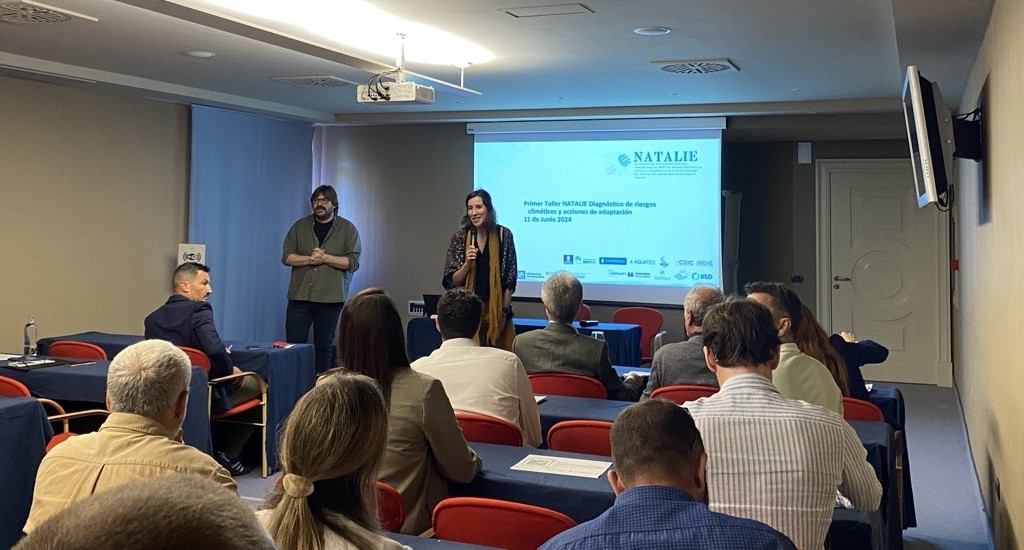
The NATALIE project recently held its first Transformation Lab (TL) workshop in Maspalomas, Gran Canaria. This workshop marks the beginning of a series of collaborative efforts to develop and implement nature-based solutions (NBS) in the Spanish archipelagos, with a focus on sustainable urban drainage systems and alternative water resource management.
In parallel to the TL workshop, another one was performed with a focus on the sustainable asset valuation of NBS implementation in Gran Canaria.
Objective
The workshop was held in Maspalomas, the study area focuses on the Special Natural Reserve of the Dunes and La Charca. This area is critical for its unique ecosystem and its role in addressing urban heat island effects, extreme rainfall, sea level rise, and coastal storms.
The primary objective of the TL workshop was to engage participants in discussions about the climate risks facing the study area and to identify how nature-based solutions can help to address these challenges. This initial meeting set the stage for subsequent workshops that will form a comprehensive Transformation Lab in Maspalomas, where long-term planning and project replication across Gran Canaria and other islands will be explored from January 2026.
The workshop on the sustainable asset valuation was carried out around a system map exercise where the main climate risks and impacts associated with the case study of the Gran Canaria were identified, as well as the benefits and co-benefits associated with the potential implementation of NBS.
Participants
The workshops were attended by around thirty representatives from neighborhood and business interest groups.
The NATALIE project partners responsible for the Spanish archipelago case study (case study#4) were present. They were joined by colleagues from Global Infrastructure Basel (GIB) Foundation, ICATALIST S.L, International Institue for Sustainable Development (IISD), AQUATEC (AGBAR), Canaragua, S.A., and Water, Environment, and Business for Development (WE&B).
Raúl García Brink, Gran Canaria’s Minister of Environment, Climate, and Energy, chaired the workshop. The Environment and Environmental Policies Department of San Bartolomé de Tirajana City Council, headed by Councillor Araceli Armas Cruz, was also present, demonstrating the local government's support for the initiative.
Background information
Case Study #4 in the Spanish archipelagos involves the implementation of NBS in three locations: Gran Canaria, Tenerife and Fuerteventura. In Gran Canaria, the focus is on sustainable urban drainage systems within the Las Dunas de Maspalomas Special Nature Reserve.
The Maspalomas site serves as a Transformation Laboratory (TL), integrating stakeholder participation to co-design and co-implement NBS. The site will develop tools to assess the financial viability of NBS to stimulate public and private investment. Scientific analysis of climate risks will be enhanced through hydrological, hydrodynamic, pollution, biodiversity and hydrogeological modelling.
Read the article published by the local media: https://maspalomas24h.uk/Article/6536/Natalie-project-new-life-to-the-Maspalomas-pond